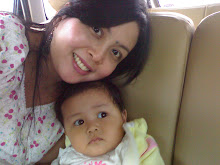Speech Problems
| If your preschooler is slow to talk or has a speech problem, where do you turn for help? Speech and language development varies greatly between children in their early years. While some have begun to string words together by 18 months, others have only mastered a few; by their third birthday some are prattling away endlessly, incorporating a complex variety of tenses and vocabulary, others occasionally stutter or struggle to master sentence structure. With so much variation, it can be hard for parents to know whether their child’s speech and language development falls within the norm. Up to 10 per cent of children in Children will then be referred to the local Early Intervention team for assessment. This system has the advantage of being free of charge because it is government funded, but also the disadvantage of waiting lists, which in some parts of the country can be frustratingly long. Private therapists typically charge around $65 for a 40-minute session and can be found either by contacting the University clinics in |
Learning to talk
| There are lots of ways you can help your child to learn to talk. And it is important – kids with good language schools have a head-start when they begin school. • Children are more likely to talk early if exposed to rich and varied language as well as interest and enthusiasm for speech from their parents. • Talk to your baby in “mothers” - that universal way of speaking to babies involving higher pitch, greater intonation, and slower speech and stressed words. For example, “Yes, that’s right, it’s a BALL.” Apparently children prefer listening to it. • Encourage early attempts at “babbling” (from around six months). Babies who babble more start talking earlier and have larger vocabularies by 18 months. This is because we react positively to babies saying “mama” which helps them to realize words have a purpose. • Switch off the TV and background noise. They will learn best from interacting with you and other people. • Talk slowly and clearly, using simple words, so your baby can understand. • Imitate your baby by repeating their first words and expanding upon them. Expand their language as much as you can, introducing your child to new words, adjectives and phrases. • Give them lots of “wait time”, and don’t finish their sentence for them. Be sensitive to turn taking and allow them to lead the conversation. They need to learn how to listen as well as talk. • Be sensitive to your own child’s developing vocabulary. Toddlers often develop sounds that mean something to them, if not immediately to you. For example, “ba” can sometimes mean bottle, “uh” up and “da” that. It is also common for single syllables to stand for complete thoughts so that “da” can mean “give me that” or “what is that?” The more encouragement you can give them the more likely they are to continue trying with more words and sounds • Encourage their speech every way you can. Ask them to repeat the words you are telling them: “Look at that dog. Can you say dog? What sound does a dog make? Can you say woof?” Ask questions that don’t just require a yes or no answer: “Yes, Dolly is sad. What happened to make her sad?” Name their body parts as you dress them in the morning, count buttons and discuss color and shape of clothes. Count vegetables as you put them in bags and discuss their color as you go round the supermarket. • Read to children as much as you can. It not only increases their vocabulary and makes them interested in books, but extends their concentration span. When you come across new words, take the time to ask them if they know what they mean. • As they grow older, make sure you talk like a grown up. Don’t resort to saying “get tie” just because that’s how they say spaghetti. • Correct any miss-pronunciations positively. If they say “tar” for car, reinforce their successful communication (it is successful because you have understood) by repeating the word using the correct form: “Yes, that’s right, it’s a CAR.” |

No comments:
Post a Comment